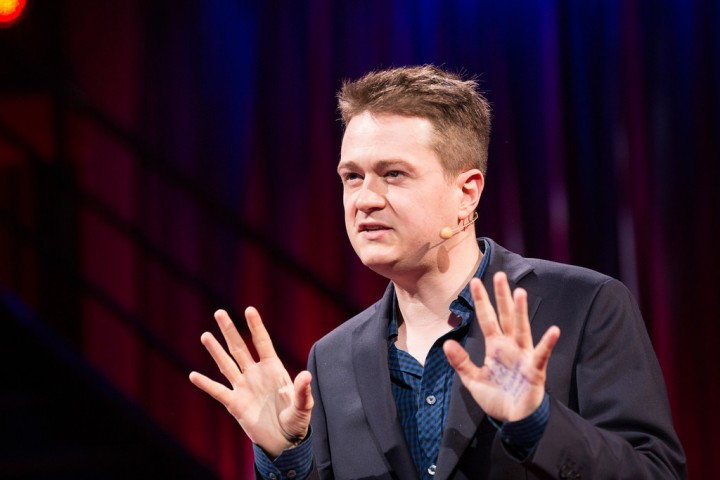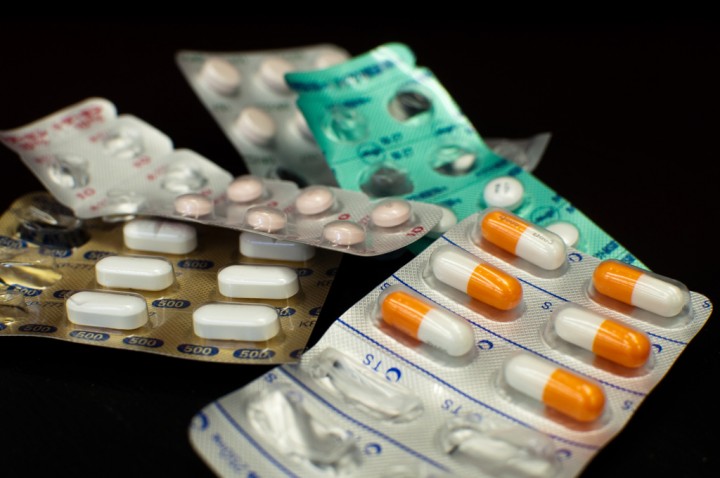We previously published a review of The Lost Connections: Uncovering the Real Causes of Depression – And the Unexpected Solutions, a book by Swiss-British writer and journalist Johann Hari, in which he attempts to re-examine the way that society views depression. However, while Hari raises some valid criticisms, his critique ends up being exaggerated and one-sided.
In the past period, the scourge of mental illness has increasingly come to public attention, and with good reason. While mental illness is not as obvious as other illnesses or injuries, it can nevertheless still have a severely incapacitating effect on those affected, as well as their nearest and dearest. In Britain, approximately one in four people suffer from some sort of mental health problem every single year. Young people, and particularly women, are some of the hardest-hit groups. Women between 16-to-24 years of age saw an increase in Common Mental Health Diseases – a measure which excludes mild depressions – from 21 percent in 2000, to 22.2 percent in 2007, to 28.2 percent in 2014!
Furthermore, in 2014, 5.4 percent of 16-to-74-year-olds reported having had suicidal thoughts within the previous 12 months: a significant increase on the 3.8 percent in 2000. The amount of people above 16 who had performed different forms of self-harm at one point or another has also increased from 2.4 percent in 2000, to 3.8 percent in 2007, to 6.4 percent in 2014.
A 2017 survey by the Mental Health Foundation revealed that over 40 percent of British people contacted have suffered from depression. The survey found the most significant demographic differences were related to household income and economic activity. Accordingly, 73 percent of those living in the lowest household income bracket (less than £1,200 pm) had experienced a mental health problem at some point in their life, compared to 59 percent in the highest income bracket (over £3,701 pm). Furthermore, 85 percent percent of those unemployed said that they have experienced mental health problems compared to 66 percent in paid employment.
Stress, pressure and alienation in capitalist society exert a profound impact on people’s mental well-being. Poor living conditions in this class-based society are leading to millions of cases of depression and anxiety. That is what Hari grapples with in his book and his many subsequent articles. He takes this one step further by slamming the large pharmaceutical industry (‘Big Pharma’), claiming that they are pushing their own agenda to the detriment of suffering patients. Yet the evidence he uses to back up his claims about pharmaceuticals and medical professionals in general are exaggerated and one-sided. He poses himself as a rebel and a radical who is standing up to the system, yet is he saying anything new?
Bending the branch too far
In a Guardian article, Hari claims that:
“All over the world, [doctors] were being encouraged to tell patients that depression is, in fact, just the result of a spontaneous chemical imbalance in your brain – it is produced by low serotonin, or a natural lack of some other chemical. It’s not caused by your life – it’s caused by your broken brain…At the moment, we offer depressed people a menu with only one option on it.”
This is the crux of his argument, i.e. that a fundamentally outdated medical model is failing people. The truth, however, is that the role that life events and trauma play has for years been widely accepted in the scientific community as one of the root causes of depression. What is called the biopsychosocial model (as it incorporates aspects of psychiatry/medicine/psychology) has been the professional standard for treatment since it was formulated in the 1970s. There is not one single cause of depression, and many factors with many corresponding treatments are accepted by medical professionals. The vast majority of published scientific literature on the subject backs up this position.
 Many of Hari’s claims have long been debated by the medical and scientific community as ‘radical’, fringe ideas / Image: TED
Many of Hari’s claims have long been debated by the medical and scientific community as ‘radical’, fringe ideas / Image: TED
This is not to say that the for-profit pharmaceutical industry does not push its own drugs in order to make more money, but that is a criticism of capitalism, and of health services that are subjected to the anarchy of the markets. Hari correctly identifies the connection between mental illness and people’s present living conditions under capitalism, even though he is very reluctant to use the word. In the general decay of capitalist society, mental health illnesses affecting the working class have reached epidemic proportions. The causes include the lack of control that people have over their own lives, the stress of living in a society that puts profit first and foremost, and the alienation and loss of community that people experience under class society. Socialists have long been fighting for better living conditions, and have correctly identified the root cause of these problems in capitalism.
The only way to begin changing these conditions for the vast majority of people, and end the alienation and trauma they experience, is to remove the system that creates these problems. This does not deny that there is a biological side to depression. The biological basis of depression is the interaction between the material brain and a person’s responses to the world, which are made real by the chemical interactions of the brain making sense of them. Affective disorders such as bipolar disorder and schizophrenia are of course affected by the conditions that patients live in, and their interaction with other humans, but the material factors of brain chemistry and hormonal responses play a prominent role.
Sometimes these responses are set in motion before the birth of the individual, through interactions with the mother in the womb. Long-term and recurring mental health illness show an increase amongst certain nuclear families, which indicates a genetic link. In monozygotic (identical) twin studies, rates of mental illness that are shared between two individuals are strikingly clear, even in twins who were raised separately. In some affective disorders, candidate genes that affect the probability of disorders have been identified and analysed. But again these are all in conjunction with environmental causes and stresses which play an equally important role.
In terms of treatments and medical professionalism, Hari makes the same exaggerations, in Lost Connections:
“So now if your baby dies and you go to the doctor the next day and you’re in extreme distress, ‘you can be diagnosed immediately,’ Joanne explained to me. And so the model is preserved. Depression is something you can find on a checklist. If you tick the boxes, you’re mentally ill. Don’t look for context. Look for symptoms. Don’t ask what is happening in the person’s life.”
However, in the aforementioned Guardian article, he is even sharper:
“Now, if your baby dies at 10am, your doctor can diagnose you with a mental illness at 10.01am and start drugging you straight away.”
Reactions to grief are a natural response that are often used to rule out depressive symptoms. These issues are complex and are assessed on a patient-to-patient level. It is an exaggeration to claim that all health professionals are callously eager to medicate people who are grieving, especially with the known side-effects and risks associated with antidepressants. In fact, patients usually have to show symptoms of depression for periods of weeks in order to be officially diagnosed and treatments are usually offered after this time. In fact, of all the adults in the US over the age of 18 who had suffered a major depressive episode in 2016, an estimated 44 percent received combined care by a health professional and medication treatment, and 13 percent of people were treated by a healthcare professional without using medication. On the contrary, only 6 percent of people were treated with medication alone. However, the real problem here is the fact that the remaining 37 percent of adults suffered major depressive episodes and did not receive any treatment. This is the disaster that years of austerity and privatisation of the healthcare system have led to.
Furthermore, relatively little is known about the effect of these drugs on the patient’s system. This means they will often require regular check-ups, suffer relapses, or need to change medication, all of which require additional resources.
Antidepressants
The effectiveness of antidepressants, the risks of side effects and relapses, and the ease in which they are prescribed, have been hotly debated within the scientific and medical research community for years. Study after study by both the pharmaceutical bodies themselves, as well as independent research bodies, have rigorously tested the legitimacy of pharmaceutical drugs for mental health disorders. Hari’s book poses the question of their legitimacy as if the results of these tests are suspect, but there is little evidence for this.
The Royal College of Psychiatrists estimates that 50-65 percent of people treated with an antidepressant for depression will see an improvement, compared to 25-30 percent of those taking inactive “dummy” pills (placebos). This means that most people do benefit from antidepressants, even if it is sometimes a result of the placebo effect.
A large, double-blind comparative test of 21 antidepressant medications, funded by the UK Department of Health in February 2018, showed similar results. They came to the conclusion that “All antidepressants were more efficacious than placebos in adults with major depressive disorder.”
In the paper’s summary the authors mirror the consensus of the scientific community:
“Major depressive disorder is one of the most common, burdensome, and costly psychiatric disorders worldwide in adults. Pharmacological and non-pharmacological treatments are available; however, because of inadequate resources, antidepressants are used more frequently than psychological interventions.”
On the issue of relapse, which is common to people who have mental health disorders, Hari laments:
“It turns out that between 65 and 80 percent of people on antidepressants are depressed again within a year. I had thought that I was freakish for remaining depressed while on these drugs. In fact, Kirsch explained to me in Massachusetts, I was totally typical.”
However, this is not entirely correct, as the same double-blind study cited above shows that people who are not on antidepressants are far more likely to relapse:
- Without preventive treatment: about 50 out of 100 people who took a placebo had a relapse within one to two years.
- With preventive treatment: about 23 out of 100 people who took an antidepressant had a relapse within one to two years.
Further studies show that, amongst depressed women with moderate baseline depression and anxiety, for the first six months of their treatment, medication was actually seen as being superior to cognitive behavioural therapy (CBT) – which is the most common form of therapy given in the US for depression. However, the difference diminishes and is not sustained after one year. Among depressed women classified with severe depression, there was no significant treatment group difference at six months, but CBT was superior to medication at one year.
 Hari underplays the effectiveness of antidepressants / Image: securecat
Hari underplays the effectiveness of antidepressants / Image: securecat
This provides further proof that anti-depressant medication does work and is a useful treatment, but as we have already pointed out this is just one side of the equation. Long-term problems cannot be solved with medication, and should ideally be treated appropriately with counselling. Unfortunately, many workers lack the time, money and access to provision to receive adequate care.
In contrast to these rigorous studies, Hari’s book (by his own admission) is filled with anecdotal evidence from people who have overcome depression and boosted their own mental health using community-and-collective based actions. The story of the Cambodian rice farmer who changed careers and overcame trauma, the Kotti housing project in Berlin and the Baltimore Bicycle Works workers who formed a cooperative. These examples are not to be dismissed or sneered at, for they illustrate the impact of feeling that one has control over one’s life. These examples offer a glimpse into how improving living conditions under socialism will inevitably improve the mental health of people as a whole. However, they are fundamentally flawed, as they are cherry-picked examples that do not substantiate Hari’s insinuation that we should move away from pharmaceutical antidepressants.
He concludes:
“The evidence that chemical antidepressants don’t work for most people shouldn’t make us give up on the idea of an antidepressant. But it should make us look for better antidepressants—and they may not look anything like we’ve been trained to think of them by Big Pharma.”
Holistic and personable approaches under capitalism
To his credit, Hari has a point when he shows that the profit-driven pharmaceutical industry and healthcare systems, especially in countries such as the US, have a distorting effect on the treatment of depression. On the one hand, doctors in many countries are incentivised by the companies to hand out anti-depressants. On the other hand, constant austerity cuts have meant that other treatments such as therapy are almost impossible to offer, meaning that medicine is often used as a substitute. In Britain for instance, unless one is suicidal, the waiting time for publicly funded therapy is more than a year. In other countries the service is not provided at all.
Because of these problems, that are found in every country’s healthcare system, Hari’s book is aimed at giving a personal, more intimate account of suffering through depression and what people have experienced when undergoing treatment. Tight budgets, profit squeezing, a shortage of staff and constant time-restraints have undermined the healthcare system. The growing workload on medical professionals and the ever-more-unrealistic targets being put on hospital departments create a situation in which drug treatment becomes the first port-of-call rather than the more time-consuming, specialist and one-to-one alternative treatments such as cognitive-behavioural therapy (CBT) or talking therapy.
We should not shy away from criticising the failures of successive governments, hospital trusts and the capitalist system as a whole. However, Hari’s portrayal of the entire industry of professionals and scientists as nothing more than a shadowy conspiracy to push a singular agenda is exaggerated.
 Depression has a basis in the trauma that people experience under class society. But the way this manifests in people’s brains can often be treated using pharmaceuticals, although this is more effective in combination with other forms of therapy / Image: Zahy1412
Depression has a basis in the trauma that people experience under class society. But the way this manifests in people’s brains can often be treated using pharmaceuticals, although this is more effective in combination with other forms of therapy / Image: Zahy1412
Throughout the book it seems that the target audience are the people who feel failed by the medical profession. Hari talks at length of his own experiences when seeking treatment for mental health problems. Many people have been personally affected by depression either directly or through a loved one. This is why the angle that Hari is pushing might seem appealing: Big Bad Pharma are pushing fake drugs that don’t work when in fact there is a more holistic and alternative method available. In his book and across numerous articles, he repeatedly presents well-known concepts and ideas as if they were fringe, radical ideas that he has personally uncovered and is exposing to the shame of modern science. This is not true, as nothing that he says is not already well-known and hotly debated within the scientific community. The problem lies in the inability of healthcare professionals to apply this science within the limits imposed by capitalism, a fact that Hari shies away from and doesn’t mention in his book, to the delight of his many liberal reviewers and fans (including Hillary Clinton, who contributes a dedication).
The arguments that Hari puts forward about the importance of life events are undoubtedly true. However, that is only part of the story, as depression develops differently in people’s brains. For some people antidepressants have been very effective in improving their lives and relieving their suffering. By painting the role of antidepressants with such a broad brush there is a real danger that his book may sew mistrust in healthcare professionals who have helped countless individuals around the world.
Even if Hari may have the best of intentions, his line of argument isn’t based on substantial evidence and the claims he makes are exaggerated. This is a sensitive topic that affects millions of people worldwide. He too heavy-handedly dismisses the last half-century of scientific research whilst posing as a maverick, which is frankly dangerous. Depression of course has a basis in the material world and in the levels of stress and trauma that people experience under class society. But these things manifest themselves physically in patients’ brain chemistry and can often be treated using pharmaceuticals, although such treatment is more effective in combination with other forms of therapy. By removing this system based on the private ownership of the means of production, and establishing a society based on production for need, the problems of mental health will be eased and many limitations to treatment will be eradicated. However, affective disorders and mental illness as a whole will not be removed completely. The 100 trillion synaptic connections throughout the many different lobes and regions of the brain are currently beyond our full understanding.The brain is the most complex and fascinating organ in the human body, and our consciousness itself is merely our material brain becoming aware of itself and its purpose. A balanced approach involves recognising the dual and interconnected roles of chemistry and the environment.
Michael Angove




0 Comments